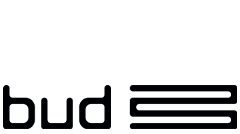
Brandon Wallace
Product Manager
Bud

Using open banking and enrichment models, fintechs like Bud take raw, unstructured, messy transaction data and identify categories, merchants, locations and regularity of transactions. This data can then be analysed to provide insights so that lenders can quickly assess affordability without relying on cumbersome manual reviews.
One of the biggest operational challenges lenders face is the resource it takes to manually assess applications. Trawling through bank statements to verify income, understand spending patterns, and understand whether a customer can service a loan are all critical tasks, but are time consuming and tedious steps that slow down decision making. “AI can help automate workflows and processes, work autonomously and responsibly, and empower decision making and service delivery.” according to a report from Google Cloud.
Use of enriched transaction data means lenders can automate much of this process. They can verify income, organise spending into categories such as ‘essential’ and ‘non-essential’ spend, surface risky activity (such as problematic gambling, debt collection agency transactions or loan stacking) and identify trends. This reduces processing time and allows underwriters to spend their time on high value tasks rather than data entry and analysis.
With these efficiencies, lenders significantly reduce processing times. At Bud, one of our clients cut application times from 40 minutes to under five minutes, while another reduced processing time by 25% for returning customers and 16% for new ones.
A smoother application process isn’t just beneficial for lenders – it’s also a major win for customers. By integrating open banking, lenders can remove friction points such as document uploads, manual income verification and long decision wait times.
One of our clients at Bud is now processing 75% of applications in under 15 minutes. These customer experience improvements lead to higher application completion rates and increased conversion.
As lenders grow, maintaining high-quality affordability assessments at scale becomes increasingly difficult. Traditional affordability checks, relying on manually reviewing bank statements and credit reference agency data, lack real-time insights and create bottlenecks. Enriched transaction data provides a categorised, real-time view of customer finances, enabling faster, more accurate assessments.
Bud’s affordability tools also help lenders standardise affordability checks across large volumes of applications. By automating aspects of the affordability assessment process and reducing manual intervention, lenders can scale up their operations without increasing costs proportionally.
Lenders must find ways to operate more efficiently without sacrificing the quality of their lending decisions. The benefits of open banking and enriched transaction data are much greater than simply assessing risk. They can transform operations, improve scalability and reduce costs.
With the right partner, integrating open banking is seamless, future-proofing lending processes for sustainable growth. For lenders looking to scale without sacrificing accuracy or efficiency, the time to embrace open banking is now.
Bud is a transaction and data intelligence platform for the banking and financial services industry, which enables global companies to make financial decisions simpler by turning transactional data into rich customer insights.
With over 50 billion transactions processed, Bud’s categorisation, analytics, and deep AI and ML capabilities unlock an endless array of insights for its clients, who can supercharge marketing efforts, refine customer segmentation, assess and manage risk and decisioning, and optimize various aspects of their business operations.
Bud works with banks, lenders and fintechs to future-proof their lending processes through the use of transaction data.
For more information, visit www.thisisbud.com.